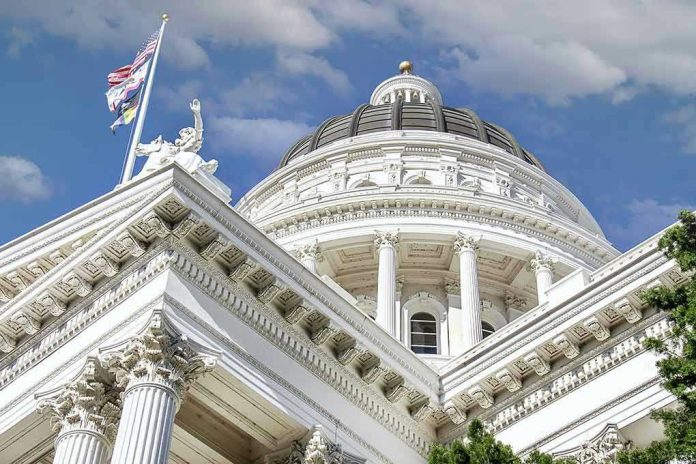
The Senate just unanimously agreed to force the Justice Department’s hand on one of the most closely guarded secrets in modern American history—the complete Jeffrey Epstein files.
Story Snapshot
- Senate passes House bill requiring DOJ to release all unclassified Epstein records
- Unanimous consent signals rare bipartisan agreement on government transparency
- Bill now heads to President Trump’s desk for final signature
- Release could expose powerful figures connected to convicted sex trafficker
Rare Bipartisan Victory for Transparency
Tuesday’s unanimous Senate approval represents something increasingly rare in Washington—complete bipartisan agreement. The House-passed legislation sailed through without a single dissenting voice, signaling that lawmakers from both parties recognize the American people deserve answers about one of the most scandalous cases in recent memory. This level of unity suggests the pressure for transparency has reached a tipping point that even the most cautious politicians cannot ignore.
What the Files Could Reveal
The Justice Department has maintained tight control over Epstein-related documents since his 2019 death in federal custody. These files potentially contain names, communications, and evidence that could implicate high-profile individuals across politics, business, and entertainment. The convicted sex offender’s extensive network of powerful associates has remained largely protected by government secrecy, but this legislation threatens to pull back the curtain on relationships that have been shielded from public scrutiny for years.
Trump’s Decision Looms Large
President Trump now holds the final card in this transparency battle. His signature would mandate the release of records that could create seismic shifts in public perception of numerous powerful figures. The timing is particularly significant, as Trump has previously expressed support for releasing government documents that expose establishment corruption. However, the files could also contain information about individuals across the political spectrum, making this a truly consequential decision that transcends partisan considerations.
Justice Department’s Resistance Expected
Federal agencies rarely welcome mandated document releases, and the Justice Department will likely seek to minimize disclosure through various legal interpretations. The legislation specifically targets “unclassified” records, potentially leaving room for the DOJ to argue that certain documents require continued secrecy. Yet the unanimous Congressional support suggests lawmakers anticipate such bureaucratic resistance and are prepared to demand full compliance with both the letter and spirit of transparency requirements.
Public Demand Drives Political Action
This legislative momentum reflects growing public frustration with government secrecy surrounding the Epstein case. Americans across the political spectrum have demanded answers about how a connected sex trafficker operated with apparent impunity for decades. The mysterious circumstances of Epstein’s death, combined with limited prosecutions of his associates, have fueled conspiracy theories that only full transparency can address. Congress appears to have finally responded to this sustained public pressure with decisive action.
Sources:
Senate Agrees to Quickly Move Bill Seeking Release of Epstein Files to Trump



